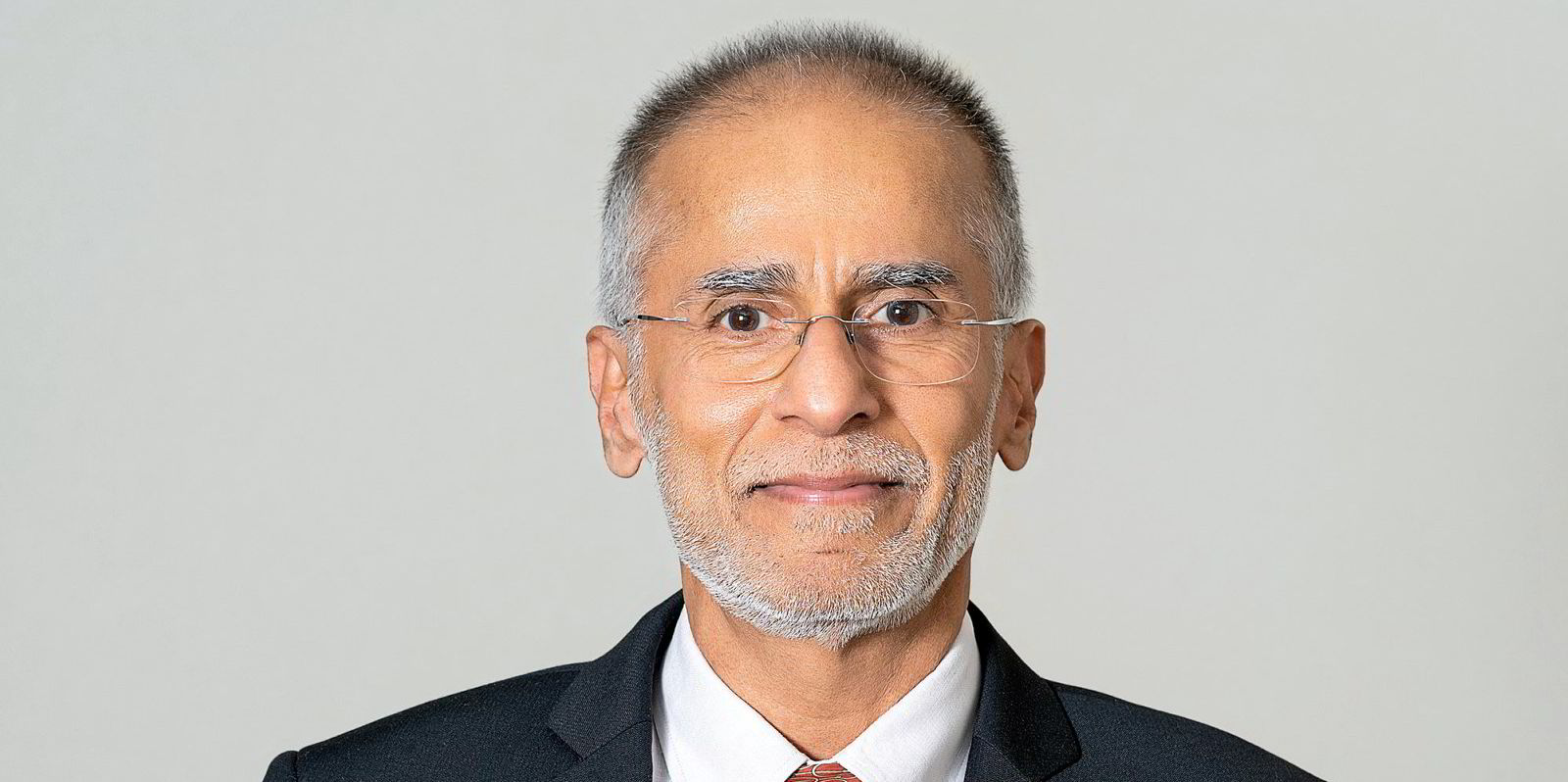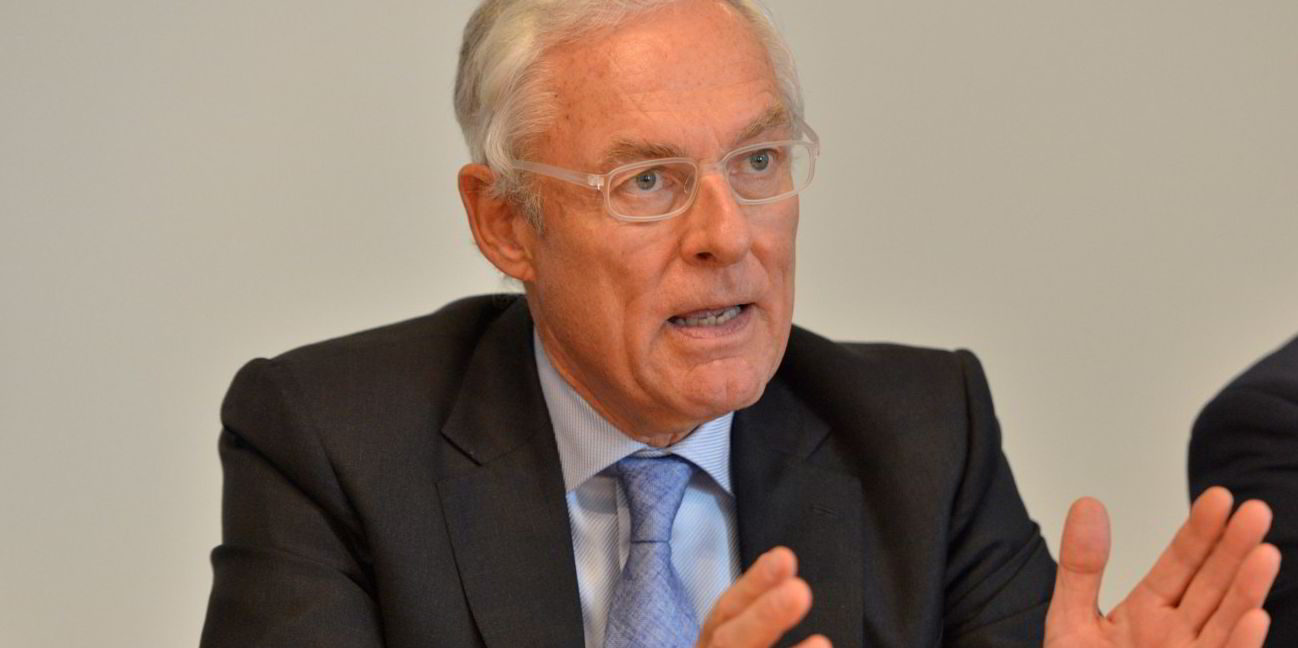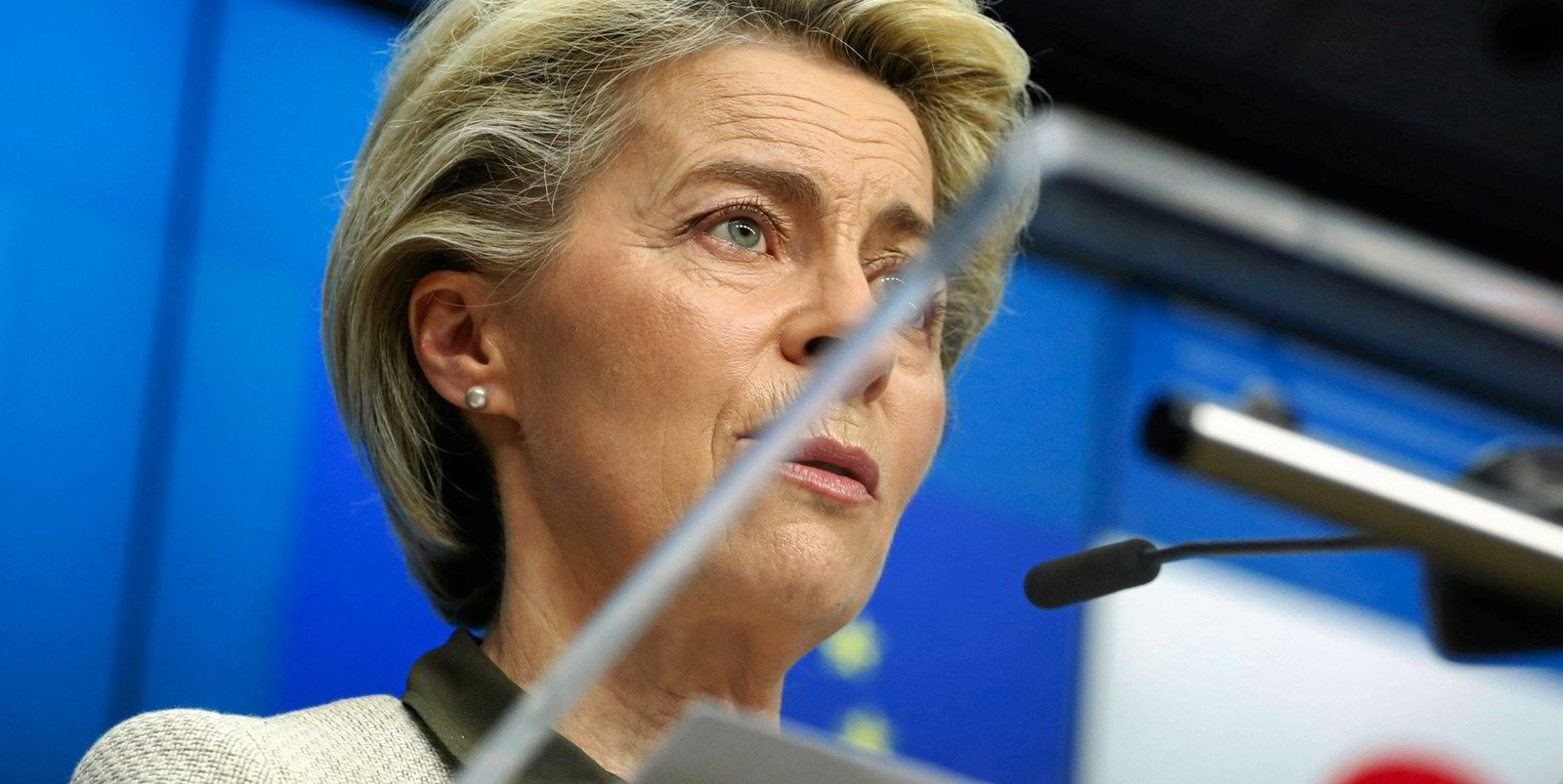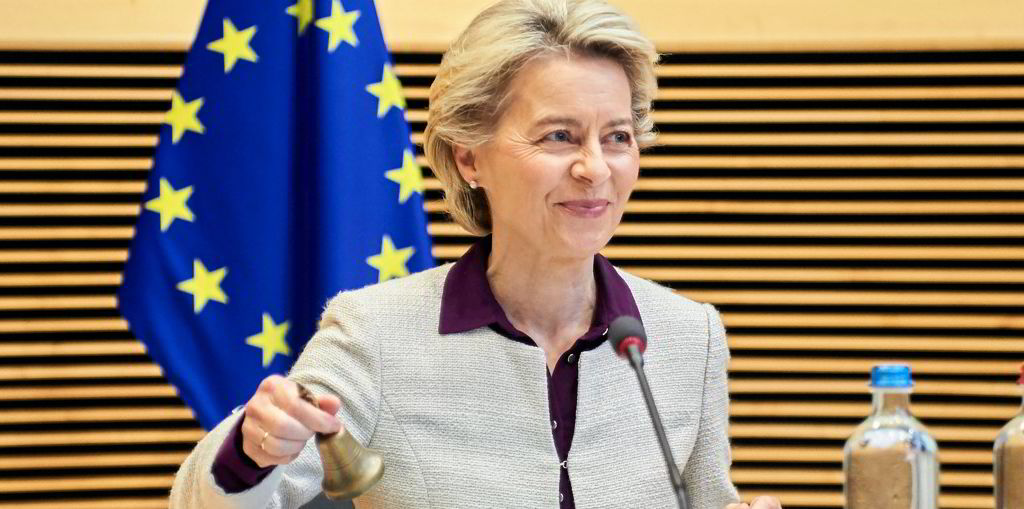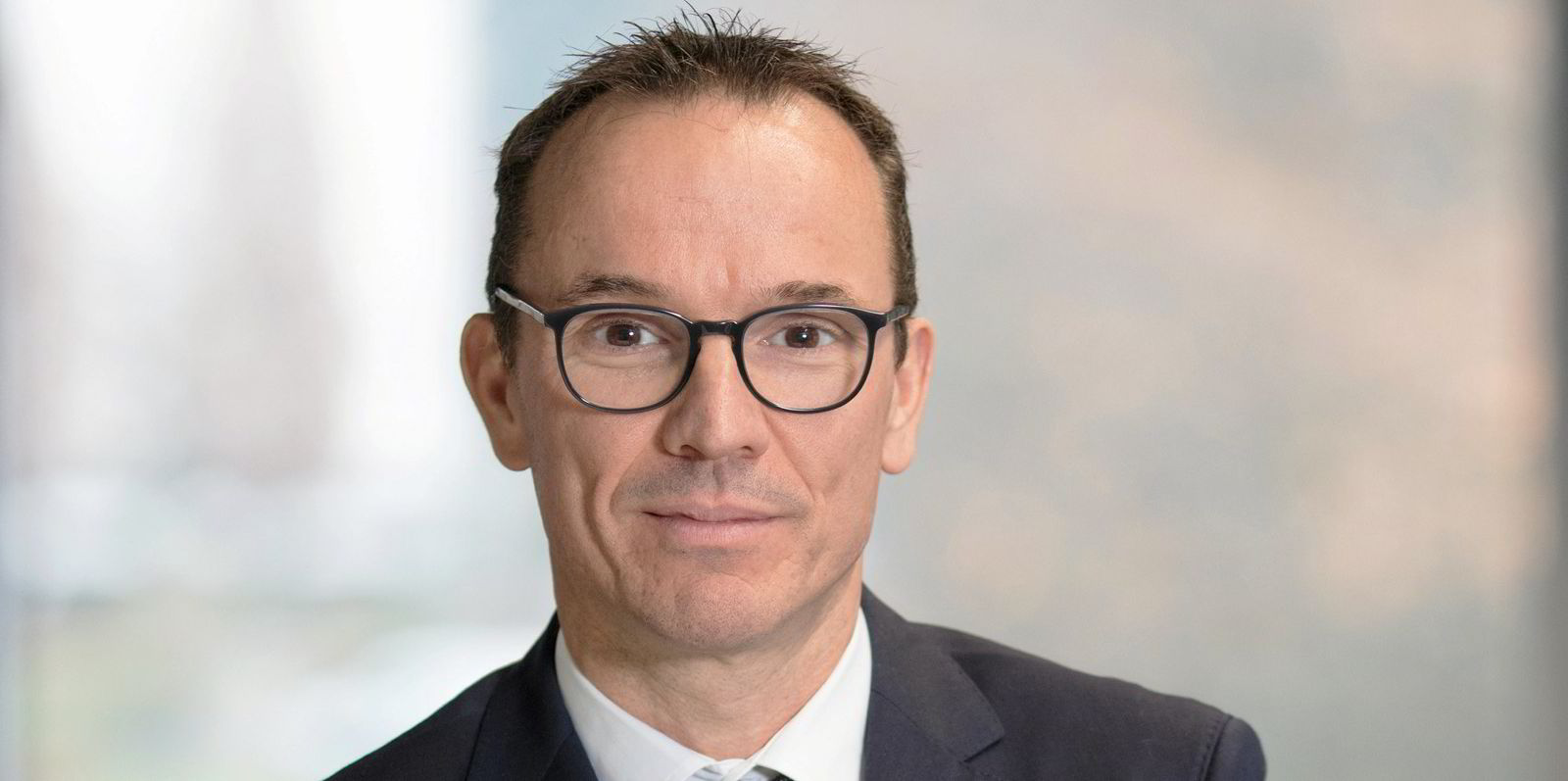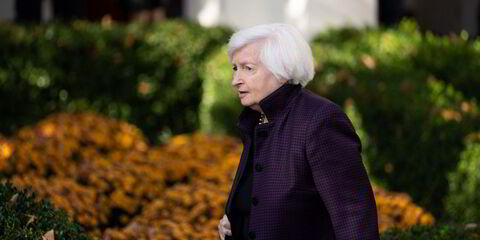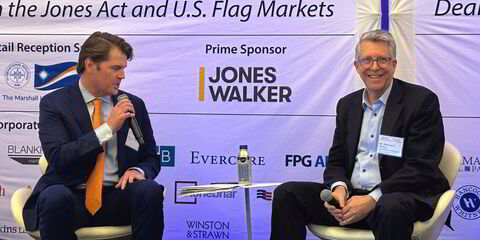Leading shipping players have voiced concern over leaked European Union plans to make shipowners — not charterers — pay for carbon under its Emissions Trading System (ETS).
Industry figures claimed this week that the proposal, reported by TradeWinds and due to be confirmed on 14 July, would divide responsibility for paying for fuel from meeting the cost of carbon allowances, and undermine the aim of cutting emissions.
Others sounded the alarm on the use of revenues garnered from the scheme and called for decisive action from the International Maritime Organization to enact a global mandatory market-based measure (MBM).
Charis Plakantonaki, chief strategy officer at bulker owner Star Bulk Carriers, told TradeWinds that carbon emissions are largely driven by vessel operating speeds, which are set by the commercial operator.
“In the cases where the vessel is operated commercially by the charterer, having the shipowner pay for emissions allowances will not incentivise charterers to optimise routes and speeds and therefore reduce the carbon footprint.”
Esben Poulsson, chairman of the International Chamber of Shipping (ICS), said: “The key issue is that who pays for the cost of fuel should be the same person that ultimately pays the cost of carbon allowances.
“Volatility in the price of allowances makes [it] far more complicated to pass on the cost to the company that pays for the fuel,” Poulsson said.
Khalid Hashim, managing director of Bangkok-based Precious Shipping, said: “If enacted and enforced, [it] would violate the basic tenets of time charterparties where the entity that performs the commercial journey of the ship remains responsible for paying for all charges.”
Japanese giant Mitsui OSK Lines, which is both a charterer and an owner, said: “We believe that we should stick to the basic policy that an operator should be the primary cost bearer.”
MOL senior managing executive officer Toshiaki Tanaka raised the idea of adding a clause to the standard time charterparty that stipulates the ETS-related levy should be always passed on to charterers.
The best way to reduce the industry’s carbon emissions is through mandatory slow steaming, said John Michael Radziwill, chief executive of bulker owner GoodBulk and of pooling giant C Transport Maritime.
Market-based measures
Christian Baekmark Schiolborg, marine environment manager at Bimco, said MBMs will be an essential mechanism to close the gap between the cost of low-carbon and zero-carbon bunkers and fossil fuels but called for international governance of national and regional schemes.
Schiolborg said Bimco expects changes to be made to the EU ETS during the negotiations between the European Commission, Parliament and Council.
“It is very difficult for shipowners to react and to know how to amend their charterparties until we get the clarity required,” Schiolborg said.
Hugo De Stoop, chief executive of Euronav, said it would be natural for charterers to pick up the bill on time charters as owners are not choosing destinations, speed or route. Spot-market fixtures might allow additional costs be taken into account in the same way as a bunker price increase.
Plakantonaki said that whether ETS allowance costs can be passed on to the rest of the value chain will be a matter of commercial agreement with charterers, but there was no guarantee they would not add to shipowners’ costs.
“Expanding its scope to include also incoming/outgoing voyages and depending on how allowance pricing evolves, we may see changes in routes and trading patterns so as to avoid additional costs from emissions allowances which could ultimately defeat the effectiveness of the ETS,” Plakantonaki added.
The Union of Greek Shipowners (UGS) deplored EC moves to unilaterally impose regional measures.
“We sincerely hope that the EC’s imminent initiatives will not undermine the global competitiveness and sustainability of the EU shipping industry," UGS chairman Theodore Veniamis said.
EU recovery bill
Poulsson added that it cannot be equitable for non-EU shipping companies to be forced to pay billions of euros to support European economic recovery plans, and the scheme was overly bureaucratic.
Non-EU states such as Japan have already expressed concern over this diplomatic overreach and imposition of a unilateral and extra-territorial tax on trade, Poulsson added.
“It is clear from how such schemes work in other sectors that there will be unintended consequences. There are simpler and more effective options but these require political leadership rather than political expediency,” the ICS chairman said.
Hashim said that Precious would seek to have a specific clause in all future charters that would define the party liable to pay under the ETS rules if the change was enacted.
“The way the rules are being promulgated shows a certain laziness with the rule-makers for not enacting rules that would concur with, and support, the hundreds of years of well-established legal decisions in shipping where all such costs are borne by the time charterers,” he added.
However, Hashim also said he hoped the IMO would respond by passing “meaningful legislation” at the Marine Environment Protection Committee's 77th session in November.
He hoped the IMO would respond to pressure from the EU, by enacting a global MBM such as the carbon levy suggested by the Solomon and Marshall islands.
The Marshall Islands plan for a $100 levy per tonne of CO2 released — which would amount to a $300 per tonne tax on fuel oil — that could be raised annually between 2022 and 2030 to reach $900.
It would mean the price of fuel oil would then be as expensive as alternative fuels such as green ammonia, hydrogen or methanol, Hashim said.
